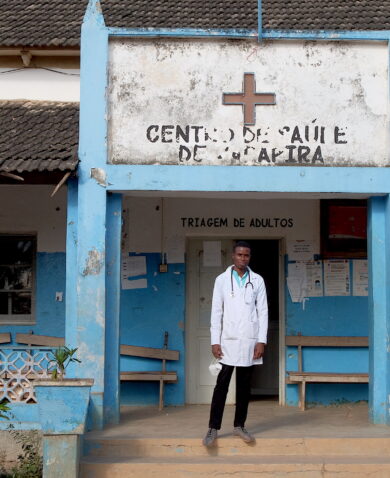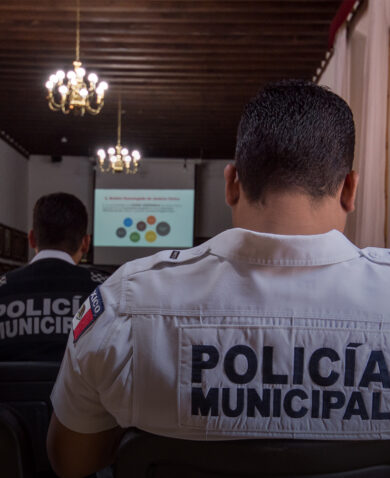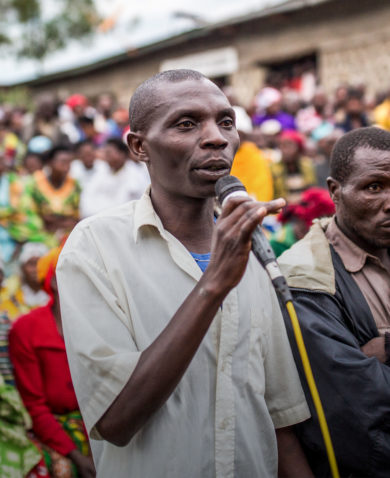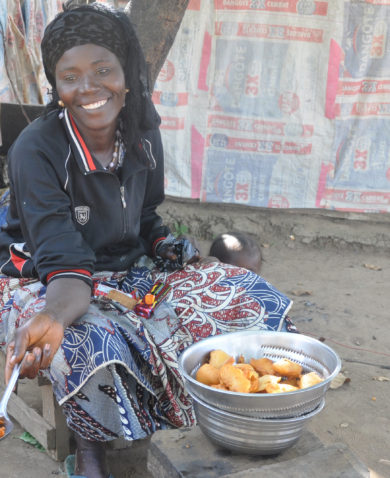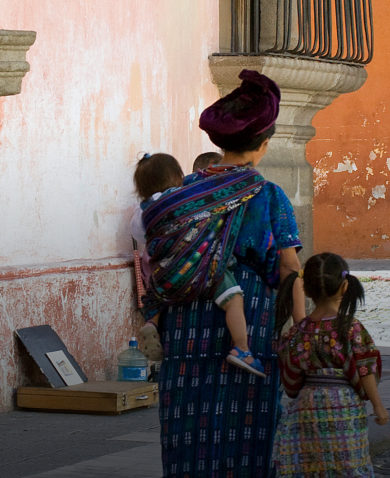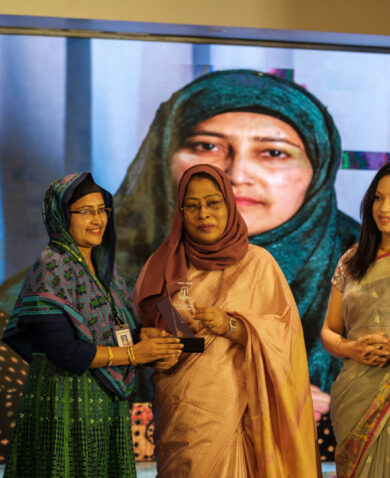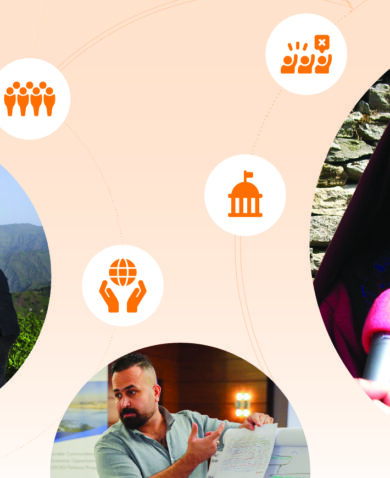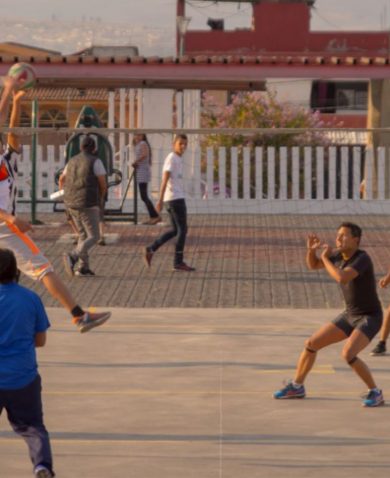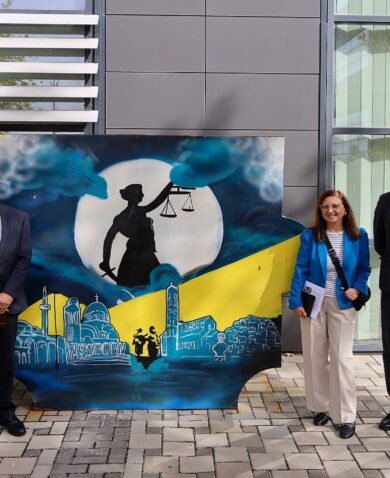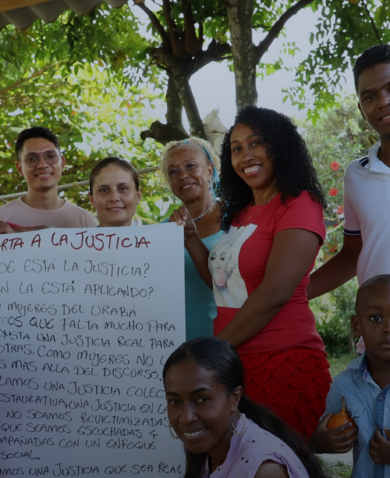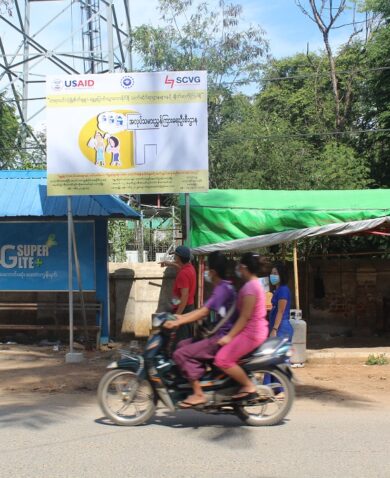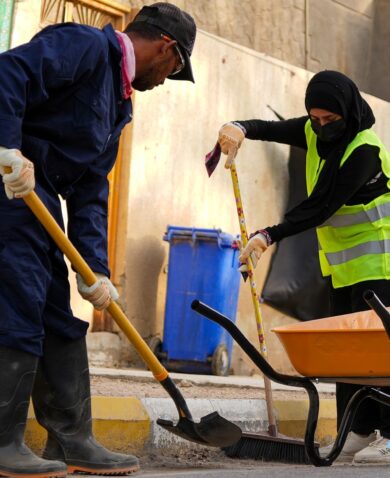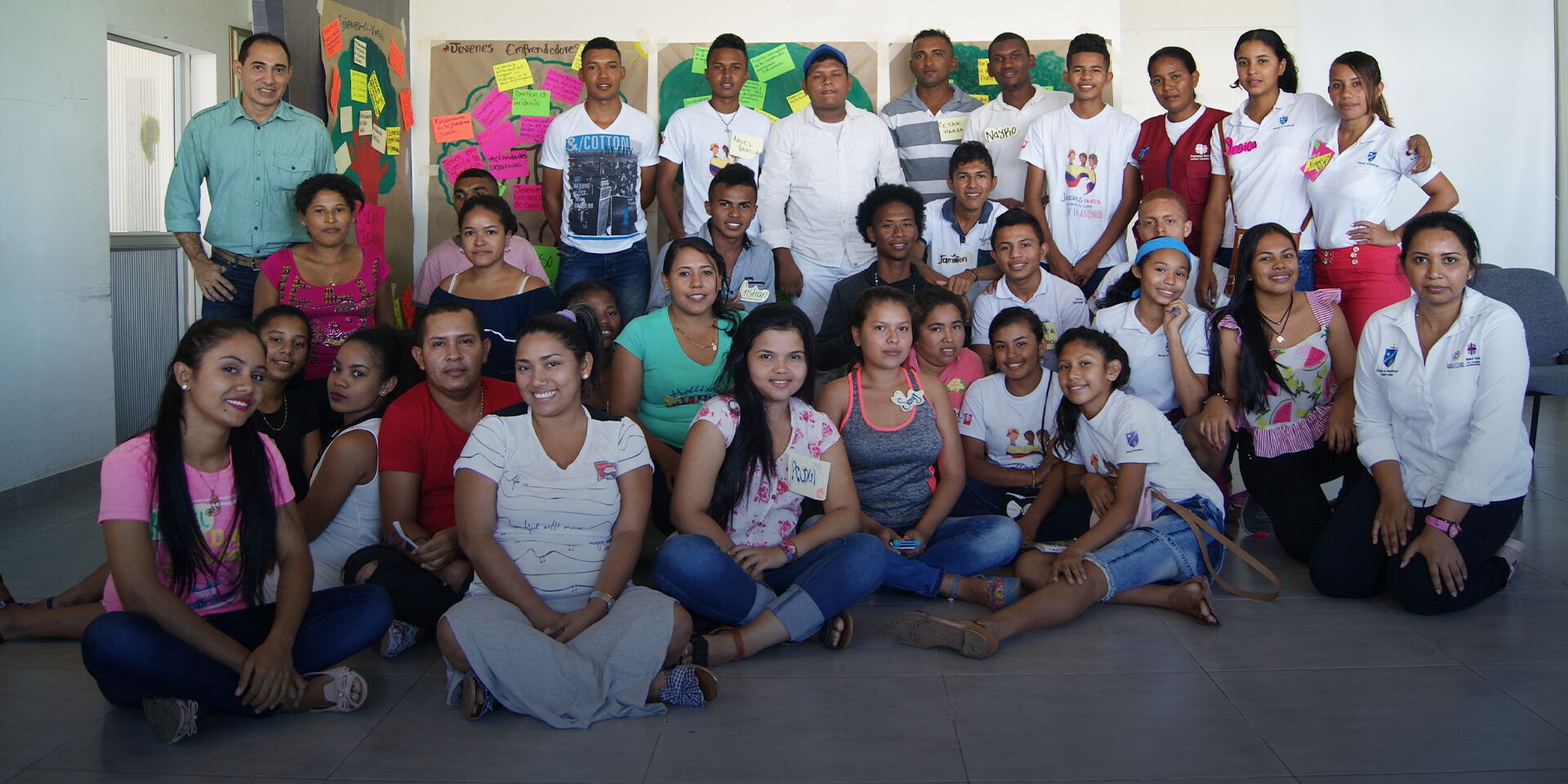
What Is People-Centered Justice Programming and Why Does it Matter To You?
February 24, 2022 | 4 Minute ReadChemonics’ Democracy and Governance Practice analyzed information from five Chemonics-implemented USAID projects on how global colleagues understand and operationalize people-centered justice (PCJ) in different contexts.
People-centered justice (PCJ) is a rule of law approach that relies on the perspectives, needs, strengths, and expectations of the justice user to improve the quality of justice and reduce barriers to service delivery. It is an approach designed to fill the gaps of traditional, institution-focused programming that has left an estimated 5 billion people behind.
It is critical that our justice systems are responsive to needs to uphold the rule of law (ROL). PCJ programming has three integral pillars: user-centered, data-driven, and solutions-oriented.
How Do You Shift From Traditional Rule of Law Programming To a PCJ Approach?
Our Democracy and Governance Practice went to the field to explore what PCJ means for project implementers and partners involved in five of Chemonics’ projects:
- USAID Kosovo Justice Activity
- USAID Rwanda Duteze Imbere Ubutabera
- USAID Guatemala Youth and Gender Justice Project
- USAID Colombia Justice for a Sustainable Peace
- USAID Dominican Republic Criminal Justice System Strengthened Project (CJSSP)
In all our interviews with project staff and partners, there was an overarching agreement that to transition from more traditional ROL programming to a PCJ approach, it is critical to shift the primary focus from the justice providers to the justice seekers and justice users, but without leaving the justice providers in the margins. Although the implementing strategies depend extensively on each specific country context, there are a couple of commonalities when it comes to transitioning into a more distinctive PCJ approach:
- Understanding the various justice needs of individuals and a community and barriers to addressing those needs. Existing data provides important inputs on understanding people’s justice needs, trust in the justice providers, and barriers to justice. However, these data points are insufficient to adopt a truly people-centered approach. Recognizing justice needs differ for everyone depending on various demographic, geographic, and socioeconomic factors, it is important to engage in collecting nuanced data for specific programs or activities. Given the importance of data-driven decision-making in PCJ programming, it is vital to have a strong monitoring, evaluation, and learning (MEL) strategy and a creative MEL team throughout the project duration.
“The most important thing is gathering and use of data on justice user needs and capabilities. In every field we worked in, understanding what to prioritize as we, nor our partner, could address everything at the same time, data was super important. With solid data in our hands, it was easier to convince the justice service providers that change was needed and to ensure political will.” – Staff member, Dominican Republic.
- Engaging justice users. Involving people in PCJ programming is essential as it increases the level of transparency, empowerment, and ownership a community has in its justice system, thus increasing sustainability. Engaging justice users throughout a PCJ project is integral to the data collection needed to inform a PCJ program discussed above; without direct engagement with justice users, a project cannot gather data with the nuance needed.
“Through engaging citizens in the justice sector, the sustainability and continuity of strengthening the justice system will be subject to citizens and not only to projects or donors who invest in the strengthening justice system in Kosovo.” – Project partner, Kosovo.
- Providing quality services and being more service-minded. PCJ emphasizes a service mindset and strengthening the soft skills among justice providers. This includes decreasing formalities in a process, decreased and more effective bureaucracy, and building staff capacity, all from the perspective of better serving justice users. When a justice seeker feels well-treated and receives a timely service, even though the outcome is not 100% what the person expected, they will feel more satisfied with the service and will come to trust the justice provider.
“We need to change also this mindset that judges are here as providers, not someone who is authoritative and who is bringing justice. Also, they are actually justice servants. They should provide a service: the justice. So, I think the justice service providers’ openness to change is one of [the] important things in a mindset.” – Staff member, Kosovo.
- Increasing accessibility to services. Addressing accessibility through reducing the barriers to assistance, whether they are linked to language or distance to justice services, for example, is a top priority.
“Some groups are more affected when it comes to exercising their rights. These are women and LGBTI individuals, who suffered discrimination on the basis of gender, Afro-Colombian and indigenous populations, who suffered discrimination on ethnic grounds, and a third group that is the victims of the armed conflict. In theory, there is equality, but there is a huge gap between what is recognized by the law and the ability to exercise those rights.” – Staff member, Colombia.
- Investing in strategic communication. Communication is imperative not only to inform individuals of their rights and how to access services but also to build trust in justice systems. When justice providers lack sufficient attention to strategic communication with the public, they risk misperception regarding the progress in the justice sector. By being more transparent and effectively communicating with the public, the justice system can improve trust in the system needed to effectively provide justice for all.
“We involved the local communities, the local justice users so that they knew what the local justice systems are, what is the approach, and how it belongs to ME and related to ME. And how I am related to THEM. How I am part of that.” – Chief of party, Colombia
To Finalize…
PCJ is a complex concept, but it opens the doors to opportunities for improvement, to contribute to a paradigm shift in the justice sector, and to positively impact people. The know-how on implementing PCJ programming and its definition is still nascent. We at Chemonics are committed to improving the global community’s understanding of this important approach and mindset shift. Further details on how Chemonics’ projects have put these pillars into practice, read our “Putting People at the Heart of Rule of Law Programming” blog post from December 2021.
Banner Image Caption: Staff from our Colombia Justice for Sustainable Peace project worked with youth to identify their justice needs.
Posts on the blog represent the views of the authors and do not necessarily represent the views of Chemonics.







